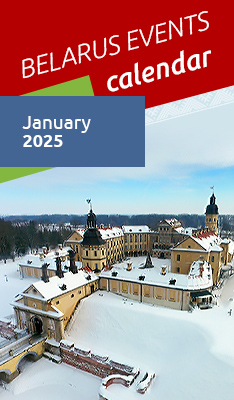Become a partner in a humanitarian project
Humanitarian project “Smart Home for Independent Living”

Project name: Smart Home for Independent Living
Applicant: Vesnovo Boarding School for Children with Physical and Mental Disorders
Address: Vesnovo village, Glusk District, 8-02230-74084, vesnov04di@gmail.com
Applicant:
A total of 159 people live in the boarding school. Children and young people with disabilities need constant medical and social care. The school has created the necessary conditions for their safe and comfortable living. It also takes care of educational and rehabilitation needs of the children and young people.
Project manager: V.V. Klimovich, director of the boarding school
Phone: 8 02230 74084
Assistance received from other foreign sources: In 2016, the initiative of the boarding school “A carpentry workshop for disabled people” won the maiden competition of local initiatives within the framework of an international technical assistance project. Since 2017, the boarding school has been running two pilot programs initiated by the Irish charity “Chernobyl Children’s Project International Limited”:
Right to Legal Capacity: The purpose of the program is the restitution of the legal capacity of students who reached 18 years old.
De-institutionalisation: Enabling young people to live a more independent life, in the company of a carer, and learn to take care of themselves.
- Total financing (in USD): 250,000
- Co-funding: Not available
Project period: 5 years
Project objective: De-institutionalisation of students and graduates of the Vesnovo Boarding School for Children with Physical and Mental Disorders by slowly introducing them to living independently.
Project tasks:
1. To create a comfortable environment for communication and work of graduates of the boarding school and participants in the projects “Right to Legal Capacity” and
“De-institutionalisation”.
2. To create an enabling and convenient living environment by zoning the space, installing the necessary technical equipment and furniture adapted to wheelchair users.
3. To provide graduates of the Vesnovo Boarding School for Children with Physical and Mental Disorders with sufficient support and care.
4. To provide graduates of the boarding school with the “smart home for independent living”.
Brief description:
1. Designing a one-story building, auxiliary buildings (a garage, a warehouse, a vegetable storehouse, a building for livestock, a laundry room, a gazebo), as well as a parking area and an area for drying clothes, and paths.
2. Building a one-story building, auxiliary buildings, developing the adjacent territory in the town of Glusk.
3. Buying furniture and equipment for the house, auxiliary buildings and the adjacent territory.
4. Furnishing the house, auxiliary buildings and the adjacent territory.
5. Creating the necessary living conditions based on individual needs of people with disabilities, getting them employed (as social workers taking care of wheelchair users in the smart home for independent living and in other institutions of Glusk, if there are vacancies), arranging their leisure time, etc.
6. Providing social services to graduates of the boarding school.
Project substantiation:
“Nothing About Us Without Us” – this principle is increasingly gaining ground in the society. The idea behind the project of the smart home for independent living belongs to a young wheelchair user, a participant in the project “Right to Legal Capacity” Aleksandr Goldayev. He is fully aware that creating a truly smart home is difficult and very expensive, but he would like to have technical devices that will allow him to partially manage his own life, independently interact with the world of surrounding things: turn on and off the TV, light, close and open the curtains, independently get to the room he needs, etc.
The smart home project is like this: there are no thresholds in the house, the doorways are wide, the number of doors is minimal. A wheelchair can move freely from one room to another. Switches and sockets are installed in accessible places. The bed is wide and as high as the wheelchair. There is a bedside table, its surface can change position, the table has wheels and is easy to move. There is a wheelchair access to tables, sinks, cabinets, etc. The bathroom is equipped with a spacious shower cabin with a floor-level tray, a toilet bowl with a seat located at the height of a wheelchair and with convenient handrails, as well as a washbasin with enough room underneath for a barrier-free entrance. There is a glazed veranda overlooking the courtyard. The house has guest rooms where participants in the above-mentioned programs and visitors can live. The house is equipped with technical means that help tenants to handle everyday little things: turn on the light, open the curtains, close the doors, etc. It is convenient to move around the yard and utility rooms in a wheelchair. There is a small garden, a greenhouse, domestic animals and birds: chickens, rabbits, pigs. The graduates of the boarding school live in the house. They can also work here. For example, as social workers helping wheelchair users and in other places.
Post-project activities:
The experience of living in the“smart home for independent living” as part of the projects “Right to Legal Capacity” and “De-institutionalisation” will help improve the social status of people with special needs (restitution of legal capacity, de-institutionalisation). The project participants and graduates of the boarding school will help each other with daily activities, obtain the necessary information, address household and other issues.









 print version
print version make home page
make home page add to bookmarks
add to bookmarks

